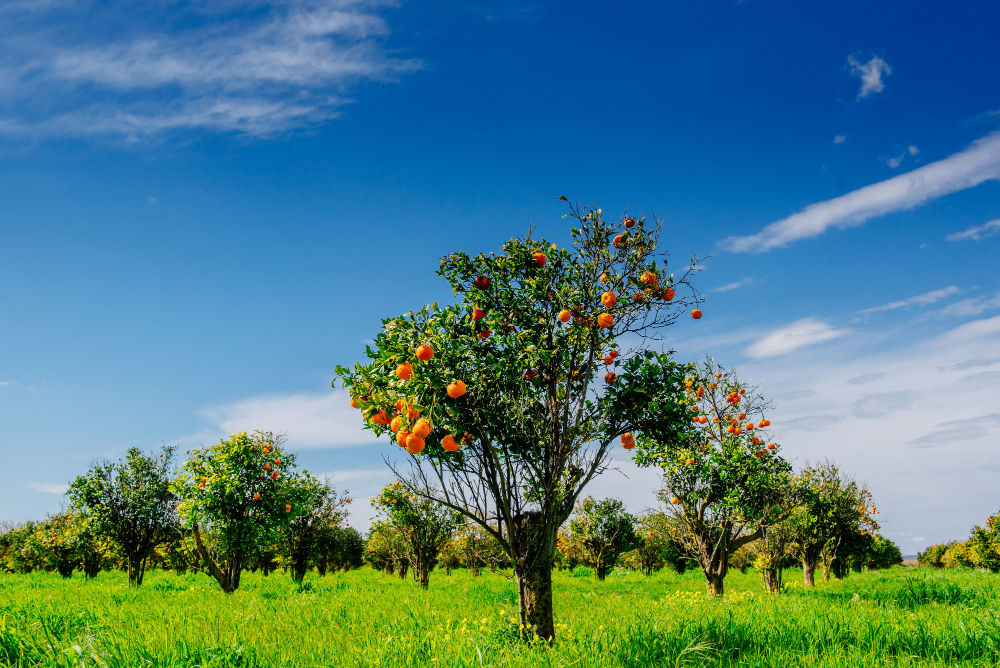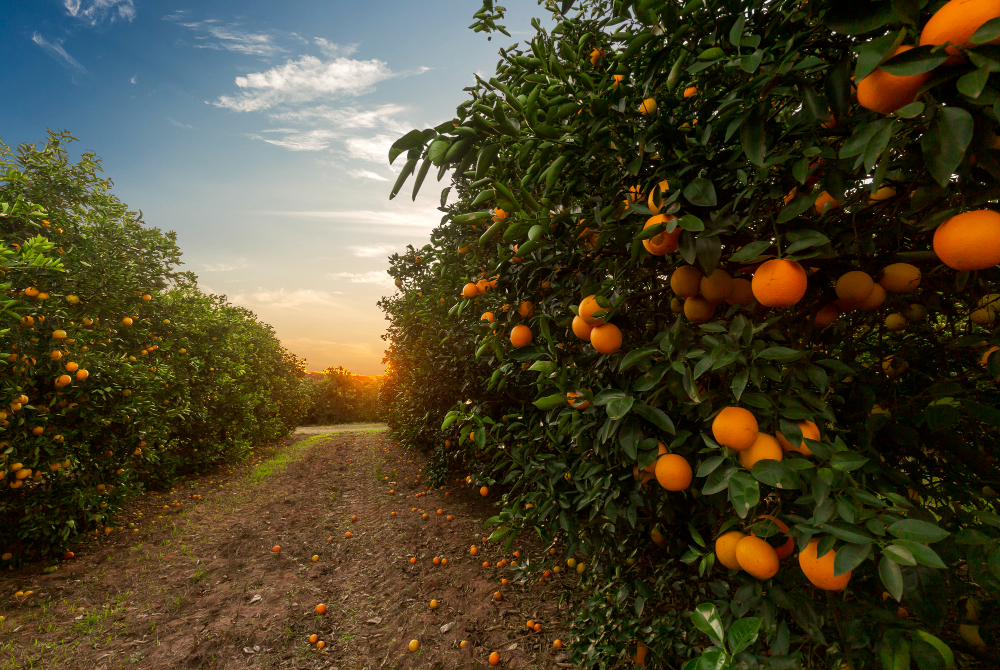Atulya Vanam's Mighty Orange Tree: Unveiling Nature's Bounty of Wellness Across Healing Traditions
The Orange tree (Citrus sinensis) stands as a vibrant symbol of vitality and rejuvenation, offering a diverse array of therapeutic benefits through its leaves, fruit, bark, roots, and flowers.
In this comprehensive blog, we embark on an enlightening journey to explore the multifaceted uses of the Orange tree across various medical systems, including Modern Medicine, Ayurveda, Unani, Homeopathy, Siddha, and its versatile applications. Additionally, we delve into the captivating varieties of oranges available in India.
Medicinal Value
Modern Medicine:
Fruit (Orange): Oranges are prized for their vitamin C content, contributing to immune health, collagen synthesis, and overall well-being.
Citrus Bioflavonoids: Oranges contain bioflavonoids with potential antioxidant and anti-inflammatory properties, supporting heart health.
Ayurveda:
Fruit (Orange): Ayurveda values oranges for their sweet-tart taste and their potential to balance vata and pitta doshas.
Peel: Orange peel is utilized in Ayurvedic remedies for its aromatic and digestive-enhancing properties.
Unani:
Fruit (Orange): Unani recognizes oranges as a source of energy and vitality, appreciated for their nutritional value.
Homeopathy:
Fruit (Orange): While not a primary ingredient, oranges may be included in homeopathic remedies targeting specific symptoms or health concerns.
Siddha:
Fruit (Orange): In Siddha medicine, oranges are believed to enhance vitality and support overall health.
General Uses
Culinary Delight: Oranges are celebrated for their juicy, flavorful fruit and are enjoyed fresh, as juices, and in culinary creations.
Citrus Zest: Orange zest, derived from the peel, adds a burst of flavor to dishes and beverages.
Aromatherapy: Orange essential oil is used in aromatherapy for its uplifting and calming properties.
Skin and Haircare: Orange extracts and essential oil are used in skincare and haircare products for their potential to brighten skin and enhance hair health.
Varieties of Oranges in India
Nagpur Orange: Renowned for its tangy-sweet flavor and vibrant color, Nagpur Orange is a beloved commercial variety.
Blood Orange: Characterized by its red-hued flesh, Blood Orange boasts a distinct flavor and high anthocyanin content.
Valencia Orange: Known for its juiciness and balanced flavor, Valencia Orange is often used for juicing.
Mandarin Orange (Kinnow): Recognized for its ease of peeling and refreshing taste, Mandarin Orange is a popular choice.



More about Orange
Orange trees (Citrus sinensis) are fascinating and iconic plants with a range of extraordinary qualities. Here are some intriguing facts about orange trees:
- Citrus Royalty: Oranges are among the most recognized and enjoyed citrus fruits globally, admired for their sweet and tangy flavor.
- Vitamin C Powerhouse: Oranges are renowned for their high vitamin C content, which supports the immune system and overall health.
- Culinary Versatility: Oranges are consumed fresh, juiced, used in cooking, and added to both sweet and savory dishes.
- Multiple Varieties: There are numerous orange varieties, each with unique flavors, sizes, and uses, such as sweet, navel, blood, and mandarin oranges.
- Fiber-Rich: Oranges provide dietary fiber, aiding digestion and promoting a feeling of fullness.
- Essential Nutrients: Oranges also contain vitamins A and B-complex, as well as minerals like potassium and calcium.
- Juicy Hydration: Oranges have a high water content, making them refreshing and helping to maintain hydration.
- Fresh Fragrance: The fragrance of orange blossoms is renowned for its calming and uplifting effects, often used in aromatherapy.
- Citrus Essential Oil: Orange essential oil is derived from the peel and is used in aromatherapy, skincare, and culinary applications.
- Traditional Medicine: Orange peel has been used in traditional herbal medicine for its potential digestive and anti-inflammatory benefits.
- Natural Sweetness: Oranges are a naturally sweet snack, making them a healthier alternative to sugary treats.
- Citrus Orchard: Orange groves are visually stunning, with rows of trees laden with colorful fruits, creating a scenic landscape.
- Historical Significance: Oranges have historical importance, with tales of explorers and traders introducing them to different parts of the world.
- Festival Symbolism: Oranges are often associated with festivals and celebrations, symbolizing joy, abundance, and good fortune.
- Global Crop: Oranges are grown in various climates around the world, contributing to their availability year-round.
- Ornamental Value: Orange trees’ evergreen foliage and fragrant blossoms make them popular choices for ornamental gardens.
- Commercial and Home Uses: Oranges are enjoyed both commercially and in home settings, offering nutritional benefits and culinary delight.
These extraordinary facts highlight the cultural, culinary, and nutritional significance of orange trees. From their juicy fruits to the enchanting fragrance of their blossoms, orange trees continue to be cherished for their role in various aspects of human life.
Conclusion
The Orange tree, an emblem of natural vibrancy, surpasses its role as a bearer of juicy fruit. Its leaves, fruit, bark, roots, flowers, and versatile applications intertwine with a rich spectrum of medical systems and cultural practices. From Ayurveda’s timeless wisdom to modern medical confirmation, the Orange tree’s offerings flourish. By embracing the harmony of traditional insight and contemporary exploration, we unveil the countless ways in which the Orange tree enriches our lives—nurturing not only our bodies but also our cultural heritage and the evergreen vitality of our surroundings.
